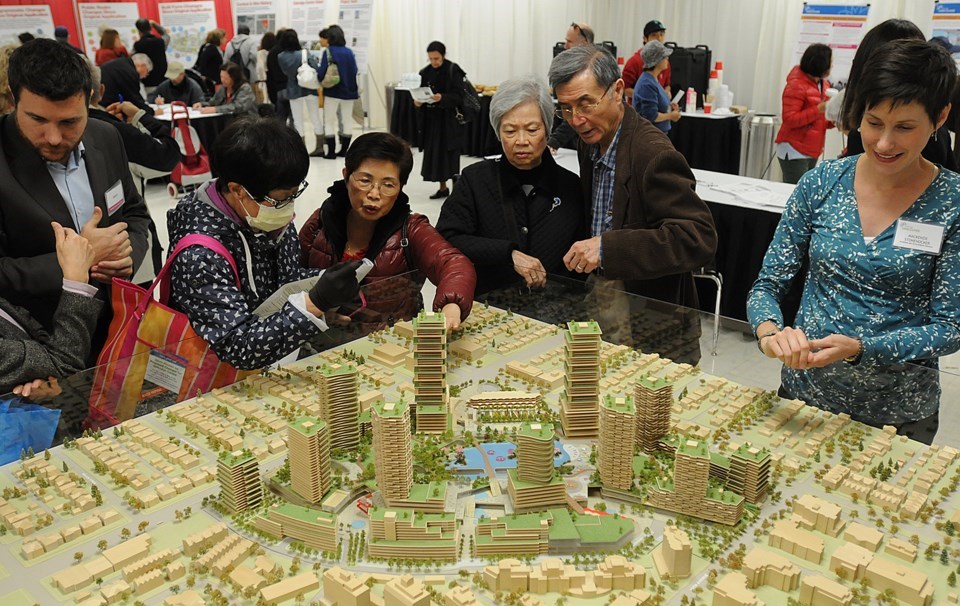For a topic so critical to our daily lives, zoning is widely misunderstood. Most of what we hear about zoning comes from academics, advocacy groups, or politicians -- and often just sounds like an excuse for why something was or was not built. Lost on most is that zoning began as part of city planning for the health and safety of its residents, which is certainly relevant as we make our way through the current pandemic.
Whether it’s pre-zone, upzone, downzone, over-zone, under-zone -- or, the most hated of all, spot-rezone -- the whole thing can make you want to just zone out. To the extent the public cares about zoning at all, it’s often because they don’t understand why a development got the go-ahead near where they live or work. They’re unhappy with city hall, suspect politicians must be in the back pocket of developers, and feel like the city doesn’t care about their neighbourhood and the people who live there.
One challenge is that any zoning or development bylaw can be changed at the will of the Council of the day, regardless of plans made by previous Councils -- often making the future of our streets, our neighbourhoods and our city as a whole seem precarious and unknown. Add to that the continual change driven by population growth and existing buildings reaching the end of their lifespan and requiring replacement.
So, how can a city like Vancouver manage this growth without alienating current residents, and meeting even the minimum needs for housing that regular working people can afford?
Big ideas like blanket rezoning of the whole city, for example doing away with single-family home neighbourhoods entirely, have the appeal of boldness and simplicity. But this kind of sweeping proposal creates a battleground for political rhetoric that creates more division in our city and risks anti-density backlash from established homeowners. Civic planning can be more creative and sensitive than a policy hammer for supply-and-demand-economic purists.
At the other end of the spectrum, let’s put the brakes on spot-rezoning. While Vancouver issues 1000s of permits per year, only around 60 overall rezoning permits are issued, mostly allowable, but do include a few spot-rezonings. Those few spot-rezonings are more often than not contentious, especially in neighbourhoods that have an agreed-upon Community Plan, which are long-term plans that can be highly effective and achieve multiple goals.
The West End has a current example of a successful community plan, where the down-zoning of upper Davie (Davie Village) limits the height and density of properties so that property values, and therefore taxes, are relatively low. This is good for the local small businesses that are crucial to the vibrancy of neighbourhood life. This down-zoning is offset by allowable high-density rental on lower Davie (upzoning) and in pockets throughout the West End that subsidize the tax loss on upper Davie but also add people to the area so small businesses can thrive. This successful model will likely be recommended to be replicated in areas in dire need of new community plans like Dunbar and Hastings-Sunrise.
Finally, we need to avoid contradicting development and zoning policies that override existing policies already in place and approved. This is like spot-rezoning but citywide. Once again, it affects the neighbourhoods with already approved community plans. The way it works is that projects that meet City Hall’s signature policy goals, can be approved for a specific site, even if they contravene the current zoning or the community plan -- taking precedence over whatever the local community thought was permitted. This kind of agenda-driven policy-making, as opposed to targeted community planning like in the West End, damage the trust of residents in neighbourhoods across the city. And Vancouver City Hall needs more trust, not less.
As city staff work away on the city-wide Vancouver Plan, the Broadway Plan, and any future neighbourhood plans, let’s hope the good work approved by residents, businesses, activists, and the Council of the day will be respected by future Councils as they work to meet Vancouver’s changing needs. Successful community planning like we see on Davie Street proves that planning and zoning can accommodate population growth while respecting what has made these neighbourhoods successful, beloved, and vibrant in the first place. If current and future Councils choose zoning policies that pander to the loudest voices, well then, there goes the neighbourhood -- and our city as a whole.
George Affleck is a former City Councillor in Vancouver, retiring from office in 2018. He is the Founder of the marketing agency Curve Communications, Co-host of the political podcast Unspun, and a regular contributor on CTV and CKNW. Twitter @george_affleck



